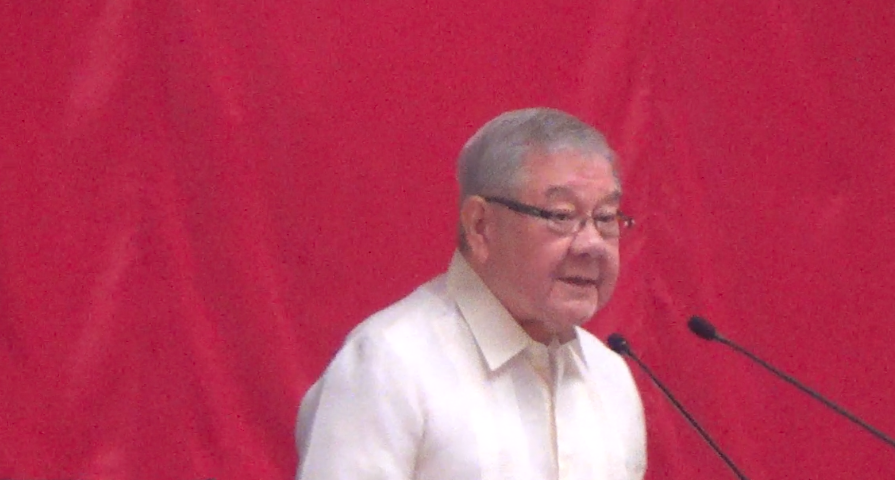Belmonte: Aquino’s ‘daang matuwid’ a resounding success
SPEAKER Feliciano Belmonte Jr. on Monday declared that the “daang matuwid” or the straight path of governance of the Aquino administration had been a “resounding success,” as the 16th Congress entered its final year.
Speaking at the opening of the third regular session before the President’s sixth and last State of the Nation Address (Sona), Belmonte said the good governance thrust of the government, as exemplified by the “no wang-wang policy” (no special treatment) introduced by Aquino in his first year, had been largely met.
“The House of Representatives has acted in this spirit, compelling even the mightiest and the most powerful in the land to submit themselves before the full majesty of the law, subjecting all those culpable to a complete accounting before our people,” he said.
He said good governance is the prerequisite so that Congress may craft the social contract to “feed the poor, educate our children, cure the sick, provide decent employment for our workers, empower the social sectors and defend our national territory.”
“By this measure and by these standards, we can all proudly and resoundingly say, that ‘daang matuwid’ has been a resounding success,” Belmonte said.
Article continues after this advertisementThe leader of the House identified priority legislation in the year ahead, including thorny measures such as the proposed Bangsamoro Basic Law (BBL), the freedom of information (FOI) bill and amendments to the economic provisions of the Constitution.
Article continues after this advertisementHe acknowledged the difficulty of passing the contentious bills but encouraged his colleagues to forge ahead.
“This is admittedly the hard path. But let me assure you, that is the better way. This path may be harder, but it is more hopeful; it is longer, but it is more compelling; it is steeper, but is more worthy of our people,” Belmonte said.
Although there will be a transfer of power in less than 10 months, “today, we must recognize that there remains a window of opportunity to make a greater difference in the lives of our people,” he said.
He reiterated the commitment of the House to pass the BBL.
“For far too long, the conflicts in the Bangsamoro have taken on different forms, rooted in passions that feed on discrimination and deprivations that are fueled by poverty. We must address the longstanding grievances of the Bangsamoro people by empowering them to fully provide for their self-expression and development,” he said.
“But this has to be complemented by clear and decisive legislative language to accommodate and empower not just the new majority of the Muslims in the Bangsamoro, but also for other groups whose lives and work are located in these regionally autonomous areas of the Bangsamoro,” Belmonte said.
The draft BBL is still undergoing debates on second reading at the House. The target is to pass the bill before the last quarter.
Belmonte also mentioned the possibility of reviving peace talks with the communist leadership.
“We must also have the courage to finally come to peace with one another, and with ourselves, by exploring al avenues for peace, including the possibility of reopening peace negotiations with the Communist Party of the Philippines-National Democratic Front,” he said.
Belmonte met exiled NDF leaders Jose Ma. Sison and Luis Jalandoni earlier this month in Amsterdam, where they talked about the possibility of resuming peace talks over dinner.
He also asked his colleagues to pass Resolution of Both Houses 1, which would pave the way for the amendment of the economic provisions of the 1987 Constitution.
The measure was passed on second reading in May but was not put to a vote in June.
“By amending the restrictive economic provisions of our Constitution, we empower Congress to enact laws that will attract the kind of investments that will reverse the de-industrialization and de-agriculturization of our economy,” he said.
“Only then can we encourage locators and investors to expand our manufacturing sector. The area where the better-paying decent jobs can be created. This is the best strategy to ensure that no Filipino will be left behind,” Belmonte said.
He enumerated the other priority bills, including the FOI, the 2016 budget, amendments to the Build-Operate-Transfer law, the modernization of Pagasa weather bureau and the national identification system.
The FOI bill, which will open important government records to public scrutiny, is waiting to be calendared and debated on the plenary floor.
